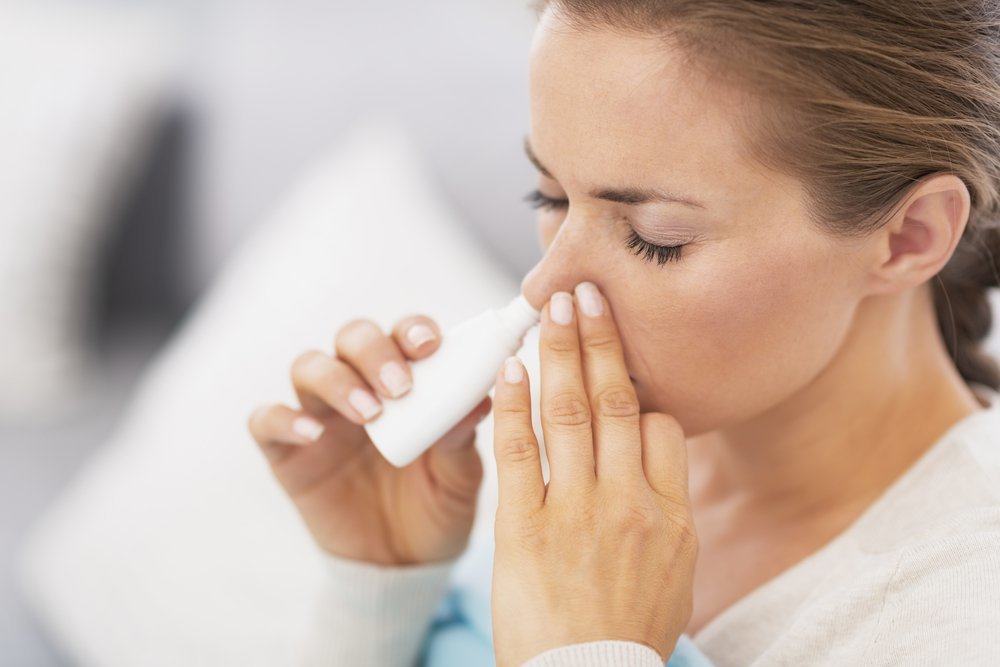Contents:
- Medical Video: How to Cure Nasal Polyps Permanently and Naturally- Get Rid of Nasal Polyps Without Surgery
- What is nasal polyps?
- Who is paloing prone to nasal polyps?
- What are the characteristics and symptoms of nasal polyps?
- What are the causes of nasal polyps?
- Am I at risk of developing polyps?
- What are the consequences if I have polyps on my nose?
- How do you prevent this?
- If I have nasal polyps, what should I do?
Medical Video: How to Cure Nasal Polyps Permanently and Naturally- Get Rid of Nasal Polyps Without Surgery
Do you have a prolonged cold? Or your nose feels blocked and becomes hard to breathe? Maybe you have polyps in your nose without you knowing. Are polyps dangerous?
What is nasal polyps?
Nasal polyps are growing tissue in the nostrils or in the form of flesh that develops in the nostrils. This growing meat is harmless, benign and soft-textured. Polyps inside the nose can grow in one hole or in both holes at the same time which is usually caused by allergies experienced by someone. Small polyps do not cause any symptoms. While large-sized polyps can be dangerous because they clog the airways, interfere with the sense of smell, and can cause infectious diseases.
Who is paloing prone to nasal polyps?
It is estimated that polyps suffer 4 to 40 percent of the total population. Polyps can be experienced by anyone but from the survey results it is known that polyps are more prevalent among men than women and in adults who are 40 years old. While children aged 10 years or even less, very rarely experience this. Some medications and therapies can help deal with emerging polyps, but sometimes the polyps will reappear even if the therapy has been successfully performed.
What are the characteristics and symptoms of nasal polyps?
People with nasal polyps also experience inflammation of the lining of the nose and sinuses that has lasted more than 12 weeks, or is chronic. If you have a small size polyp it may not cause symptoms. But if the polyp grows bigger it can cause various symptoms such as:
- Your nose keeps getting wet, like you have a cold
- The nose feels blocked constantly
- Can't smell various smells
- Reduces olfactory ability
- Facial pain
- Headache
- Pain in the upper teeth
- The forehead feels depressed
- Snoring
- Sneezing
- Feels itchy under the eyes
Most people who have polyps experience a runny nose accompanied by sneezing. About 75% of them also experience a decrease in olfactory ability and cannot smell. Sometimes symptoms of allergic aspirin appear, but this is rarely found. Prolonged and untreated nasal polyps will cause chronic inflammation of your nose.
What are the causes of nasal polyps?
Until now it is not known exactly what causes polyps that grow on the nose. The experts also do not know clearly what causes chronic inflammation or what triggers the growth of soft meat in the nostrils. Inflammation that occurs continuously produces fluid produced by the lining of the nostrils. This liquid is in the form of mucus which is then collected to become a polyp.
Some studies suggest that polyps occur in people who have different immune system responses when compared to people who do not have polyps. In some cases, people who have polyps also have a history of asthma and other types of allergies.
Am I at risk of developing polyps?
Although there are no known reasons and causes for the growth of polyps in the nose, experts say there are several risk factors that might increase the likelihood of having polyps in the nose, namely:
- Asthma, a disease that causes inflammation of the airways
- Sensitivity to aspirin can also increase the risk of having polyps
- Cystic fibrosis is a genetic disorder that produces excessive mucus from the nose
- Have a family who has or has a polyp in the nose.
What are the consequences if I have polyps on my nose?
Nasal polyps cause several problems and health problems, such as blocking the respiratory tract because they are in the nostrils, causing a sinus infection, sleep apnea namely breathing disorders during sleep.
How do you prevent this?
- Keep the humidity in your home with a humidifier
- Maintain cleanliness, by washing hands with soap and running water regularly and as often as possible. This will prevent bacteria and viruses from attaching to the body.
- Avoid objects or things that cause allergies, such as chemicals, dust, and so on.
- Perform treatment to treat asthma and allergies, to prevent more severe inflammation.
- Rinsing the nostrils with special drugs, this will help reduce the risk of allergies and irritation in the nostrils.
If I have nasal polyps, what should I do?
If you experience some of the symptoms mentioned earlier, it is better to see a doctor. Treatment for treating sinus is usually done by administering drugs that can make the polyps smaller or even disappear and carry out surgical removal of the polyps.
READ ALSO
- Get to know allergic reactions
- Dizziness As An Allergy Symptom
- Sore Throat Can Be A Symptoms Of Allergies












